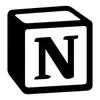
SquidHub
SquidHub is a collaboration app for those who want simple to use clear and a bit of fun in the way of working together. It allows you to keep using the preferred file sharing service no matter what other members are using. Share files and organize them in SquidHub by importing them from SharePoint, Google Drive, or Dropbox. SquidHub helps you improve your communication by eliminating the manual writing emails to customers. The SquidHub’s team messenger provides a close dialogue which makes faster communication and benefits both parties to make faster decisions.
Another highlighting feature is the shared task list that shows an overview of your team member’s status and tasks. It eliminates the hassle of wasting time in finding your team member’s status manually, what they are up to, what the schedule is or what your next task is.
SquidHub Alternatives
#1 Foswiki
Foswiki is a collaboration platform that allows your team members to collaborate and edit pages directly in the web browser. For advanced collaboration, Foswiki lets you enter macros to automate pages and build entire applications from within your browser. It benefits you from a world-class text editor that helps you create dynamic pages, to-do lists, employee handbooks, inventory systems, bug trackers, status boards, and much more. You can customize the layout of the whole site or according to per page. Foswiki includes over 200 actively maintained and polished extensions which are compatible with TWiki for a seamless migration path.
Its open-source platform makes it easier to set up software appliances for VMware or VirtualBox. Foswiki is supported by a large number of volunteers who enjoy creating the best and most versatile Enterprise collaboration platform for free. You can create applications using Excel-like macros – built-in or from numerous extensions, extract data in different formats, and combine them with APIs like Google maps and create mashups.
#2 WackoWiki
WackoWiki is a lightweight, small, expandable, and multi-lingual Wiki engine that is designed for speed and extensibility. The tool includes a WYSIWYG editor and an easy installer that helps in localization, email notification about changes in posts or comments, design themes support, multiple cache levels, URL router, template engine, page rights, BSD license, and HTML5 compliance. It also features RSS discovery which can be used to upload files on one page or globally. You can also run multiple sites on the same WackoWiki clusters and relative addressing.
#3 Walling
Walling is a collaboration platform that offers the most intuitive experience for teams and professionals to collect ideas, manage projects, and stay on top of everything. All information stored in Walling can be accessed easily with few clicks. With your ideas side by side, Walling empowers you to step back and get a high-level understanding of what you’re working on. It helps you operate more effectively, see what is important to your project and business, and it makes you a better project manager. The Daily Desk feature lets you capture ideas and spill over your thoughts on a daily basis without worrying about creating a structure, folders, or pages.
Walling allows you to invite your team to collaborate with you in real-time, leave comments and add new bricks. You can also generate public links to your walls to share them with everyone without the need for them to create an account. All in all, Walling is a great collaboration tool that enhances your overall productivity.
#4 TiddlyWiki
TiddlyWiki is a non-linear tool that enables users to create their notebook for capturing, organizing, and sharing content from the internet or complex information. The solution allows users to use it as a to-do list, and users can use this platform for writing essays or novels or organizing an event.
It is a multi-purpose tool that allows users to record every thought that goes from their minds. The solution allows users to use their thoughts and ideas to organize and build a flexible and responsive website. The tool enables users to choose where they want to keep their data, and from there, they can access it anytime.
TiddlyWiki comes with automatic saving and backup features and works on Windows and Linux. The software allows users to move or copy the file anywhere they want. It allows users to edit their data on the software, and it comes with encryption services.
#5 Confluence
Confluence is a complete project management software solution that allows organizations to create, collaborate, and organize and review project documents easily. It offers both cloud-based and on-premise deployment. The best thing about this solution is that it comes with advanced-level editor features that allow employees to quickly create content such as notes, product requirements, and research reports that make it a comprehensive solution for all businesses.
With the help of this, managers can review and share feedback in document themselves without any effort. It also comes with a knowledge management module that offers users a centralized repository to access and search relevant content according to their project requirements.
Confluence lets managers restrict access to private data and collaborate within closed groups. With this, users can also be able to publish, organize, and access business details in a central location without any limitation. Confluence also includes core features such as task management, integration with most of the leading 3rd-party solutions, simple dashboard, rich-collaboration features, etc.
#6 DokuWiki
DokuWiki is an open-source and simple-to-use tool that does not require a database and allows users to get a wiki website. The software comes with authentication connectors, access controls, and provides users with backup and integration services. It is easy to install and use, and users can add a large variety of extensions.
The software supports fifty different languages, which make it go global. The software requires low system requirements and comes with built-in access control lists. It enables users to update new pages quickly, and they can use it as a corporate knowledge base or private notebook and a software manual for users to use.
DokuWiki allows users to customize different functions of the software according to their needs. It helps users to get connected with the community from where they can access the new tips and tricks while using the software.
#7 MoinMoin
MoinMoin is an advanced and extensible WikiEngine which has a large community of users. The tool enables this community of users to collaborate when it comes to editing the web pages and adding more content to the Wiki pages. It is GPL licensed and supports Python as a Programming language.
The tool comes with page permissions, and users can set up restrictions and offers authentication backend. The solution allows users to get any visitor to blacklist who violates the rules. MoinMoin provides a support forum where users can interact with each other and can solve their problems.
It offers a chat channel to users to send messages to each other and collaborate as a team. Users can preview the changes that they made before launching the Wiki page and can view the changes history of any page or the revisions being made on it. It helps users in adding different links to the Wiki page and comes with a WYSIWYG editor.
#8 MediaWiki
MediaWiki is a website that offers a collaboration and documentation platform to users, which helps them in collecting information. The solution allows users to collect and organize data which is available to the people on different website and areas. The software has a multi-language feature that will enable them to add data in any language they want.
The platform helps users to use this solution to gather data and create the content for their website. It also contains a translation extension that helps in converting one language into another. Users can set up restrictions of data on the downloading of the files from the software.
MediaWiki enables the teams to collaborate and bring each data on each knowledge base, which helps in dividing the work. It allows users to search the content from the platform quickly. Users can run this platform as a regular blog.
#9 Wiki.js
Wiki.js is one of the most powerful and extensible open-source Wiki software that helps users in making documents. Users can install the tool anywhere they want, as it is compatible with PostgreSQL, MySQL, etc. The service comes with a blazing fast engine that is built with performance in mind.
The tool offers an interactive admin area that allows users to manage all aspects of their Wiki. Users can enjoy both the light and dark modes of appearance of the Wiki. It enables users to choose whether they want to make their Wiki a public platform or a mix of it.
Users get a local authentication feature that helps in self-registration and password recovery along with third-party authentication services such as GitHub, Slack, etc. It comes with a WYSIWYG editor that allows users with no coding skills visually build their documents. Users can track their content history and the updates they made to it.
#10 XWiki
XWiki is an open-source platform that allows different organizations to save money as well as time. It enables the user to access all types of business data or other information most easily. This platform has made complex things quite easier for organizations. With almost different plugins, 600 extensions, macros, applications, and macros, it is the most versatile platform available in the market.
Furthermore, it also lets non-technical users develop their own extensions within few minutes without much effort. It also offers other features such as team calendars, API, group forums, knowledge base, search functionality, tags and keywords, document templates, collaborative workspace, and much more. XWiki is commercial software and offers multiple price plans, and each plan has its own cost and core benefits.
#11 SlimWiki
SlimWiki is a trusted platform that allows you to create beautiful wikis for teams that are simple and versatile. The software comes with deficient friction content creation that will enable you to spend more time on your business to bring productive results. SlimWiki makes amazing, the careful design so, just all you need to focus on content. You can create useful content via simple drag and drop option placement and layout of images and files.
Every change you made is stored and easy to compare pages quickly, and your data is securely backed up and exportable. The content you made can be visible to your whole company and the content creator only or restricted to the specific team. SlimWiki allows you to make a fantastic tablet, desktop, or phone designs, and its responsive interface adjusts perfectly to the devices.
#12 Notion
Notion is a feature-rich project and workflow management software that helps businesses to streamline operations related to goal setting, lead management, status tracking, and much more. The software comes with a drag and drop interface that allows you to easily organize, rearrange, and develop new ideas, plans, and thoughts.
With the help of this solution, you can create and maintain a knowledge base for multiple topics, including task instructions, coding guidelines, and all the other similar things. Like other similar project management software, it also comes with a calendar and Kanban that allow you to create roadmaps, monitor tasks based on completion status or assignment team members, etc.
It also allows you to enhance your communication with team members by adding comments on tasks and projects that save a lot of time and effort. Notion’s other prominent feature includes collaboration, periodization, communication tools, create subtasks, real-time editing, and much more.

















